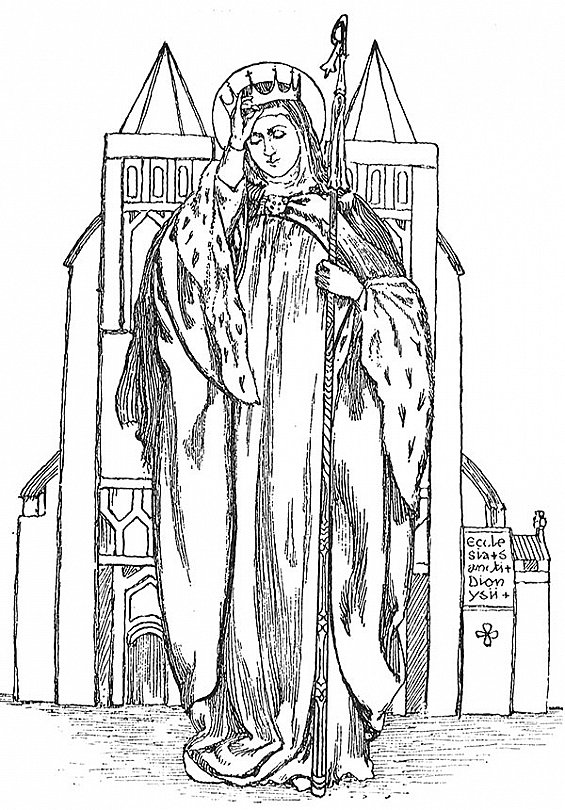Beautiful 17-Year-Old Bathilde Went from Slave to Queen of France

Bathilde opposed slavery, having been a slave herself.
AROUND 645 OR 650, Danish raiders plundering England seized Bathilde, a daughter of royalty—or so goes one legend. Whoever her parents were, Danes captured her and sold her as a teenager in France. What must have seemed a disaster for her at the time became a stepping stone to fame.
Archimbold, Mayor of the Palace (like a prime minister) of the kings of France, was struck with her beauty and pleasing behavior. He bought her for his wife as a maid. “Bathilde” was probably not her original name, because it means “maiden of the female apartment”—a maid in waiting.
According to some accounts, when the mayor’s wife died soon afterward, he decided to marry Bathilde or to make her his mistress. Bathilde was averse to the match. She matted her hair, dirtied her clothes, and smeared her face with ashes, disguising herself as a scullery maid. Perhaps she even ran off. Archimbold married someone else.
But soon Bathilde cleaned up and reappeared in her sunny beauty. King Clovis II solicited her hand in marriage. Bathilde accepted and in 649, when she was seventeen, became queen of France. This sudden restoration of her fortunes did not make her vain. On the contrary, she continued to serve others and make herself useful, becoming notable for her acts of charity among the poor.
Six years after their marriage, Clovis died, leaving Bathilde with three sons: Clotaire, Childeric, and Thierry. She became regent of France.
Slaves had reason to cheer this development. Perhaps because of her own trials as a slave, Bathilde determined to destroy the institution. She could not ban slavery outright, so she sought to wither it. Among the steps she took were to reduce the high taxes which forced poor families to sell their children. Although owners could keep the slaves they already owned, she made it illegal to buy or sell any more of them in France. Furthermore, she obtained a law that any slave brought into the country became free. Not content with passive measures, she also sought out children who had been sold into slavery, and bought and released them.
With foresight, she also set out to improve French lands by planting monasteries on them. And, she attempted to cleanse the church of simony—the buying and selling of lucrative church positions.
Power meant little to Bathilde. When Clotaire was old enough to ascend the throne, and her other sons had settled in their territories, she retired to a convent. There she lived out the years left to her in service to God and her fellow nuns. She took ill in her mid-forties. On her deathbed she saw a vision of a ladder which angels called her to ascend. According to tradition, Bathilde died on this day 30 January 680, one of the most noble, humble, and beloved queens of France. Thanks to her, France became the first Christian nation to outlaw slavery. Catholics regarded her as a saint and Pope Nicholas I agreed, canonizing her about two hundred years after her death.
—Dan Graves
----- ----- -----
Read about more godly women in Great Women in Christian History






